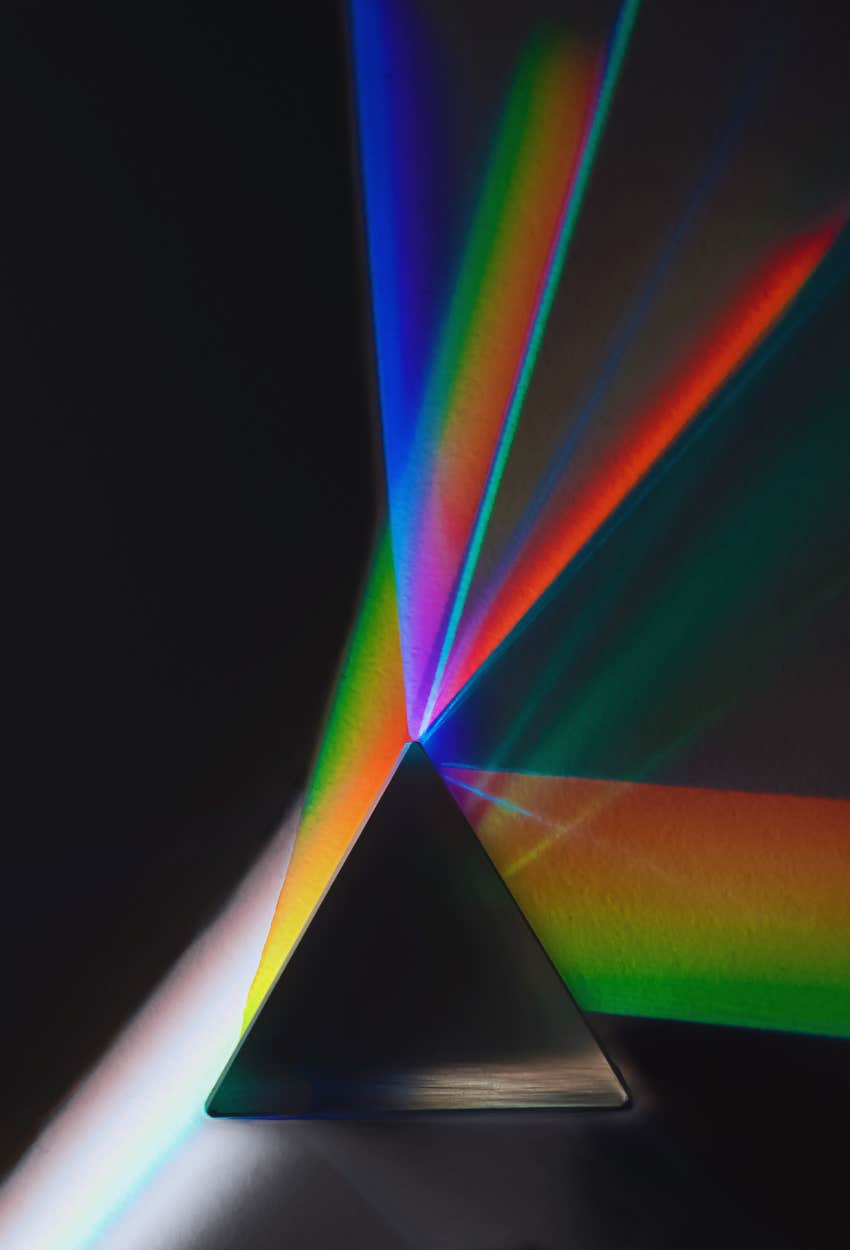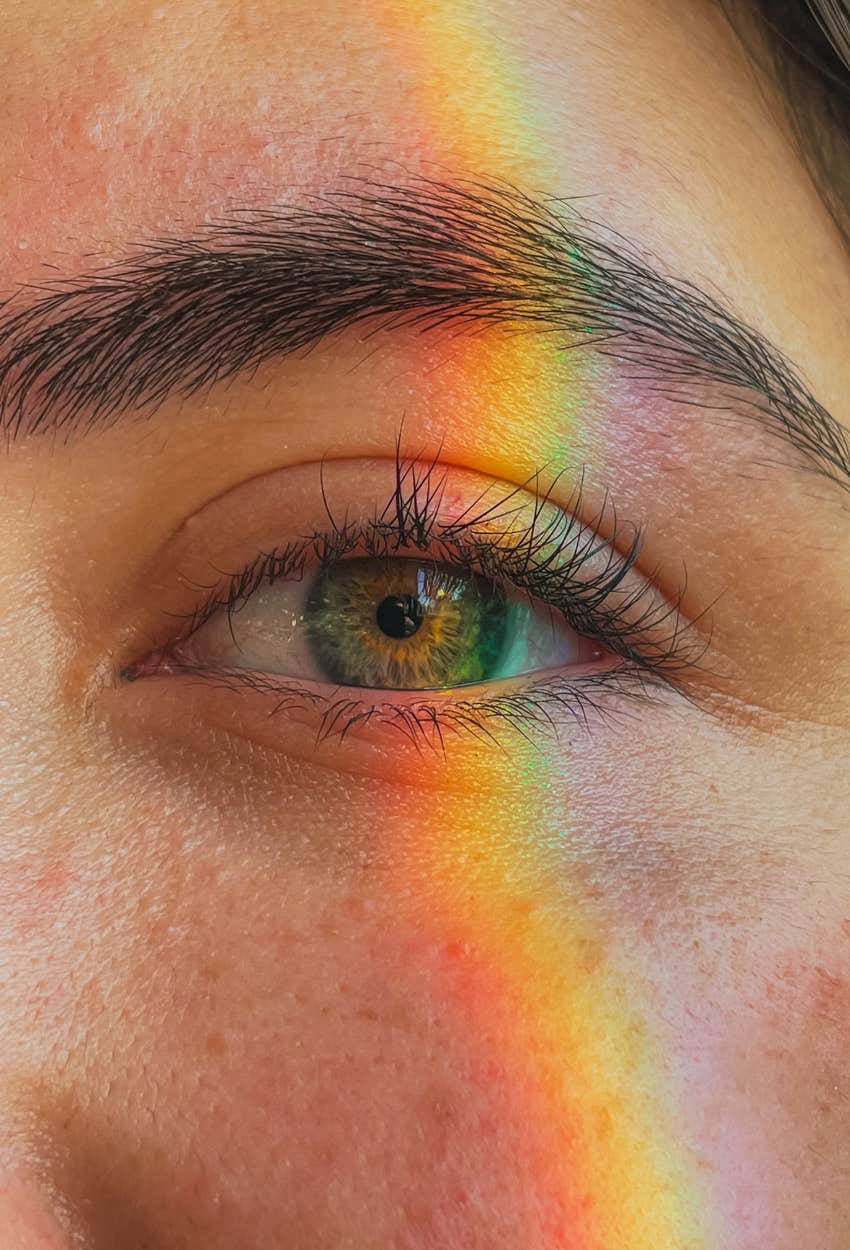There’s One Color That Doesn’t Exist — Our Brains Made It Up, According To Scientists
You've been bamboozled by your own brain!
 Tatevosian Yana | Shutterstock
Tatevosian Yana | Shutterstock It turns out that one of the colors we see in the world every single day is actually just a pigment of our imagination — er, sorry, figment of our imagination. Scientists say it's a sort of collective delusion our brains invented because our eyes can't even really register it. Get ready to feel gaslit, because...
Purple does not actually exist, and scientists say we collectively made it up.
Don't worry, we're not trying to gaslight you into thinking you live in some alternate reality from the rest of us. We all learn the fake name Roy G. Biv as kids as an acronym to remember the colors of the rainbow, right? Red, Orange, Yellow, Green, Blue, Indigo, and Violet. You'll note that none of those is purple.
Bup bup bup — no, violet is actually a completely different color, scientifically speaking. Like all other colors in the spectrum (and hence in the rainbow), it has its own wavelength and everything, which you've experienced if you've ever had a sunburn from the sun's "ultraviolet" radiation. But guess which color doesn't have a wavelength ... Purple.
Purple is a combination of other extreme wavelengths that our brains don't understand.
So if every color has a wavelength, and purple doesn't, and hence isn't a color, what the heck is it? Because IDK about you, but I am literally staring at purple flowers outside the window at this exact moment, and I feel insane.
Well! It turns out purple is a combination of other wavelengths from the opposite extreme ends of the color spectrum, red and blue, which we all learned while finger painting as kids or whatever.
 Goldengate98 | Getty Images | Canva Pro
Goldengate98 | Getty Images | Canva Pro
But unlike other secondary colors like orange or green, whose components are all right next to each other in the spectrum, red and blue are on extreme opposite ends of the spectrum from each other.
So, when we see both red and blue in one place, our eyes and brains do not know what to do. They are not supposed to be together! One cannot be in Los Angeles and New York at the same time! This is madness! So our brains developed a hack to keep us from going insane.
'Purple' is the solution our brains made up to make sense of these opposing colors' wavelengths.
In addition to being from wildly opposite ends of the spectrum, our eyes are also limited in terms of what we can actually see, because our eye cones come in short, medium, and long wavelength varieties. Ultraviolet light, for example, is too short of a wavelength for our cones, so we can't see it.
Most of our cones, 60%, are for long wavelengths in the reddish part of the spectrum, while the short wavelengths in the bluish spectrum make up just 10%. Medium cones are in between, as the name suggests, at 30%. They all kick in to varying degrees to register in our brains colors that are combinations of these different wavelengths.
 Furkan Salihoğlu | Pexels | Canva Pro
Furkan Salihoğlu | Pexels | Canva Pro
To do this, our brains do a sort of math, averaging out how many of which type of cones to kick in to let us see a color like chartreuse or burnt sienna or whatever. The problem is, the shortest wavelengths our cones can detect in the violet spectrum have no overlap with the longest ones in the red.
So our brains "bend" the spectrum into a circle so that red and blue can meet and create purple to fix the confusion. They basically gaslight us into believing purple is real, so we don't freak out! Which is interesting since purple has long been the color of royalty, a thing that is completely made-up. So there, wannabe monarchs! Stick to the orange you're already known for. At least it's a real color.
John Sundholm is a writer, editor, and video personality with 20 years of experience in media and entertainment. He covers culture, mental health, and human interest topics.

